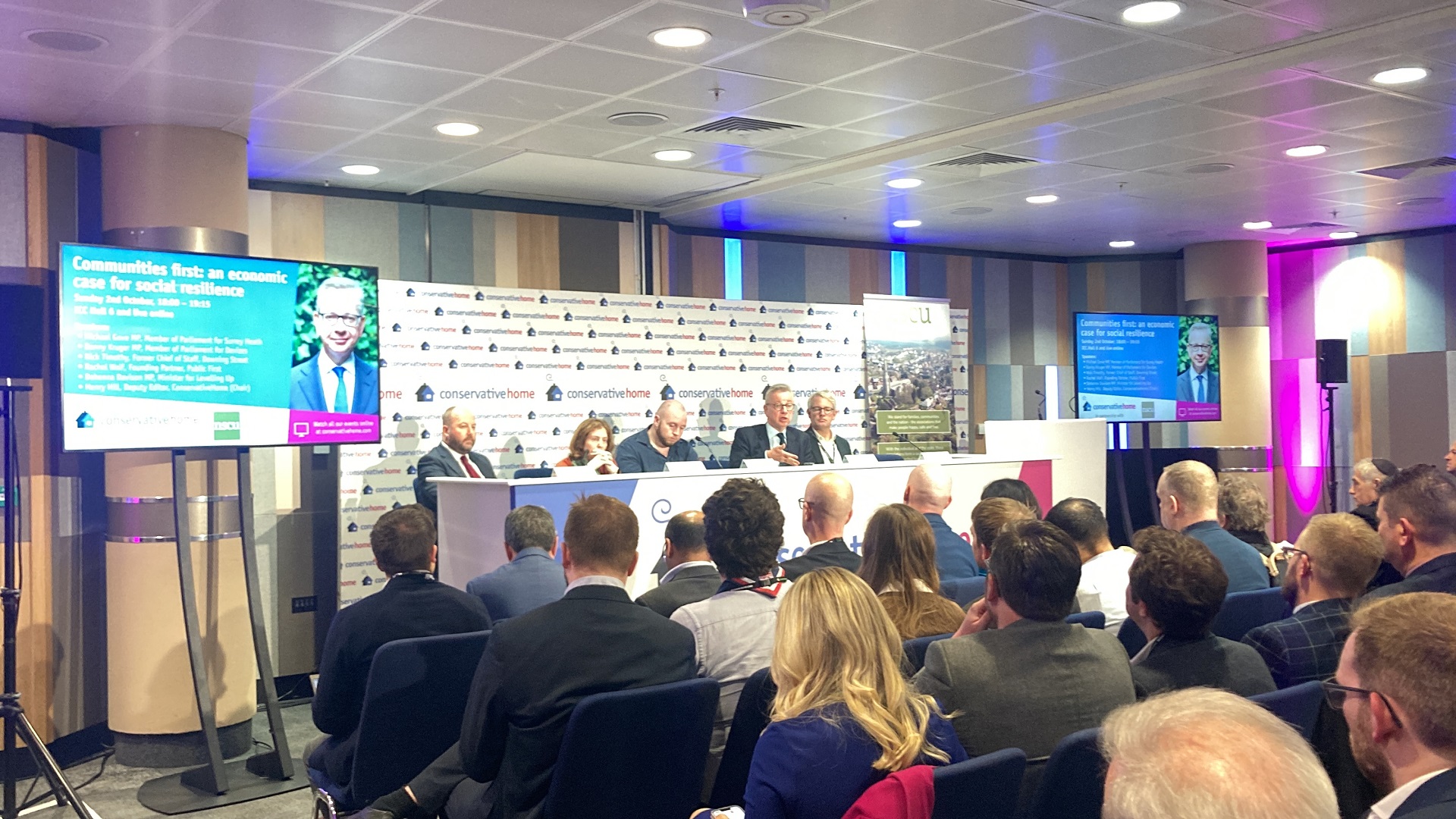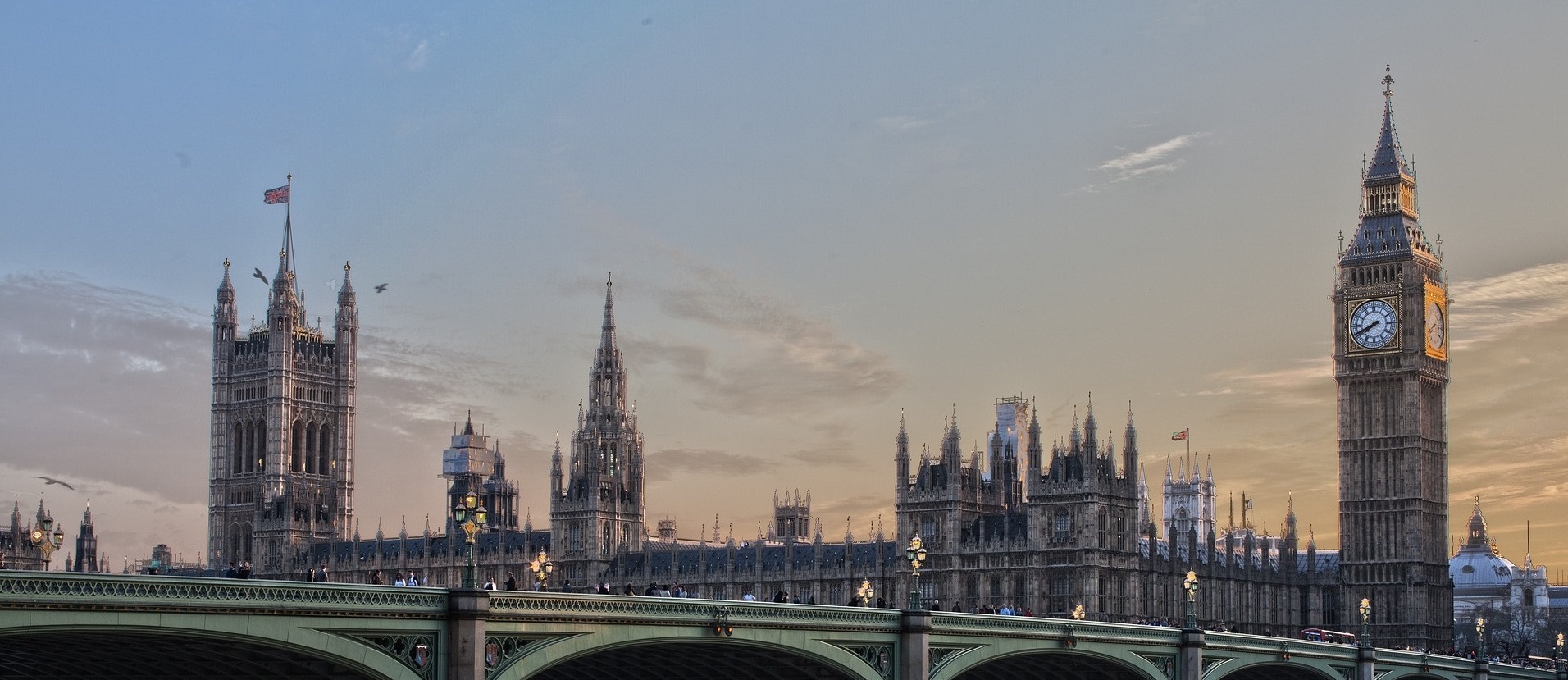News
Conservative Party Conference 2022: A Tale of Two Parties

Keen observers of social media will have noticed that Social Enterprise UK attended the Conservative Party Conference this year, one that will live long in the memory for the news and content it generated.
As with Labour, we were there to understand the future direction of policy and to raise awareness of the social enterprise sector.
Social enterprise and levelling up
Away from the headlines, there were some positive references to social enterprise and recognition of the value of the sector.
On Sunday, the New Social Covenant Unit launched a new paper called “Social Capitalism” (covered in the Times and on Radio 4), authored by 12 Conservative MPs.
The paper made the case for investing in our social infrastructure, the local institutions that make up our communities, and treating it as seriously as our physical infrastructure (roads, railways, broadband). The paper made numerous references to social enterprises from the importance of social enterprises in maintaining this social infrastructure to social enterprises delivering public services in a way that listens and works with communities creating stronger bonds between people. This will require investment in the sector, reform to the way that we deliver public services and greater support for communities to develop social enterprise solutions.
The paper was launched by the former Levelling Up Secretary Michael Gove and Dehenna Davison, the new Minister for Levelling Up, who both endorsed the vision outlined in the paper. We will be taking this forward to see if warm words can be turned into strong action to support social enterprises and realise their potential to level up the country.
There were also positive references to social enterprises at a number of different events, particularly those organised by the sector such as those from Social Investment Business and Big Society Capital. Overall, there was a sense at conference that “enterprise” was the way to help communities to level up – although without a clear sense of what government was doing to stimulate this enterprise.
No plan for growth or public services
The centre piece of the conference was “growth” and how the government was going to deliver growth. It is clear that accelerating the growth of GDP is going to be the central focus of the government. The problem is that there is simply no plan to deliver it beyond tax cuts.
Social enterprise is one of the fastest growing forms of business in the country, yet the ideological view from No.10 is that the business of business must only be business. There is no recognition that alternative approaches putting social and environmental purpose first could drive faster growth and generate greater resilience through encouraging long term investment in people and places. The main positive of the Mini-Budget and its fall out is that the shallowness of the position on tax cuts has encouraged politicians and the media to think more broadly. If tax cuts won’t work, what will improve our economy?
The fact that noted economist, Kate Raworth, was invited to speak on Radio 4 in the wake of the Prime Minister’s speech is a recognition in the media that we need a national conversation on what drives growth beyond tax cuts and deregulation. Social enterprises will need to fight to be heard but for the first time in a while, a genuine debate is emerging.
The other concerning area is public services. Under the radar of conference, the government announced that departmental budgets would not see their funding increase by inflation. Effectively that is a cut of £18bn for government departments and these savings will be passed through the system, with public services and welfare budgets likely to come under severe strain. Schools and hospitals alone are estimated to have to find £11bn in “efficiency savings” to make up for rising prices.
Given the state of public services after a decade of austerity and the impact of COVID, this feels untenable. Backbench Conservative MPs were clearly worried about the impact of further cuts to spending and once Ministers face the reality of these spending reductions, some form of rebellion feels likely.
However, the embattled state of the government means that there is no guarantee that this policy will be changed. Social enterprises delivering public services should plan for a difficult two years ahead.
A tale of two parties
The overriding sense of this conference was a party divided. On the one hand, those that have a more holistic view of society and the economy are concerned that this government is heading in the wrong direction. On the other hand, those that want to see government get out of the way and cut taxes for business feel that they simply need to stay the course. Their plan will work, if it is given time. In the middle are a lot of MPs and activists who do not know what to think. Who will win out in this battle, it is hard to say.
Either way, Social Enterprise UK will keep engaging with politicians on all sides to recognise the value and importance of social enterprise for our future. The fastest way to grow our economy and have high quality public services is to grow social enterprise.
By Andrew O’Brien – Director of External Affairs at Social Enterprise UK



